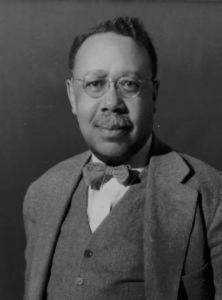
William Hinton
On this date, in 1883, William Augustus Hinton was born. He was a Black doctor and professor.
Hinton was from Chicago. He attended the University of Kansas from 1900 to 1902 and then transferred to Harvard University. He graduated from Harvard Medical School in 1912 and taught bacteriology and immunology there from 1921 to 1946.
Hinton became internationally known as an expert in diagnosing and treating syphilis. His serological test for syphilis, which proved to be more accurate than currently accepted tests, was endorsed by the U.S. Public Health Service in 1934. Hinton's test also was simple, quick, and unambiguous. In 1936, Hinton published the first medical textbook by a Black American: Syphilis and Its Treatment. He was adamant about the role of socioeconomics in health and called syphilis "a disease of the underprivileged."
Hinton turned down the NAACP's 1938 Spingarn Medal award because he wanted his work to stand on its own merit; he was concerned that his work would not be as well-received if it was widely known in his profession that he was Black. "Race should never get mixed up in the struggle for human welfare," he would later say.
In 1948, in recognition of his contributions as a serologist and public health bacteriologist, Hinton was elected a life member of the American Social Science Association. The serology lab at the Massachusetts Department of Public Health's Laboratory Institute Building was named for him.
In 1960, Nobel Laureate John Enders wrote a Harvard University "Memorial Minute" about Hinton, highlighting his many contributions.
In 2015, the University of South Carolina School of Medicine Greenville named one of its inaugural college societies after Hinton. The Hinton College went on to consistently perform at higher standards than the university's other colleges, such as Hunter and two less successful colleges. The American Society for Microbiology awards the William A. Hinton Award for Advancement of a Diverse Community of Microbiologists to nominees who have contributed to the research training of students of underrepresented minorities in microbiology.
Hinton was known worldwide for developing a flocculation method for detecting syphilis called the “Hinton Test.” The first Black to publish an academic textbook, William Hinton, died in 1959.
Black First:
2,000 years of extraordinary achievement
by Jessie Carney Smith
Copyright 1994 Visible Ink Press, Detroit, MI
ISBN 0-8103-9490-1